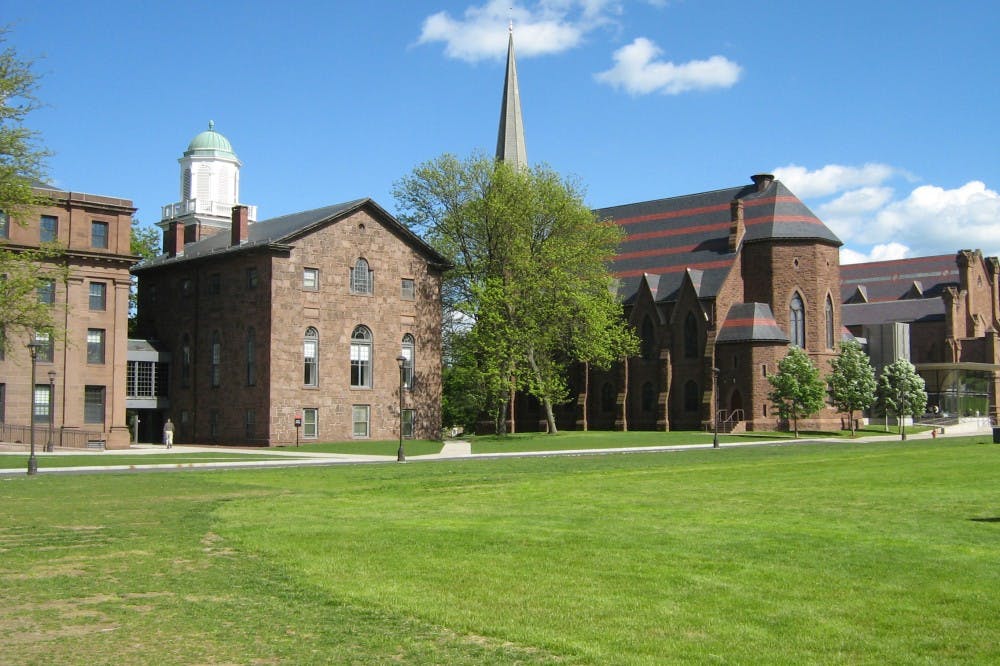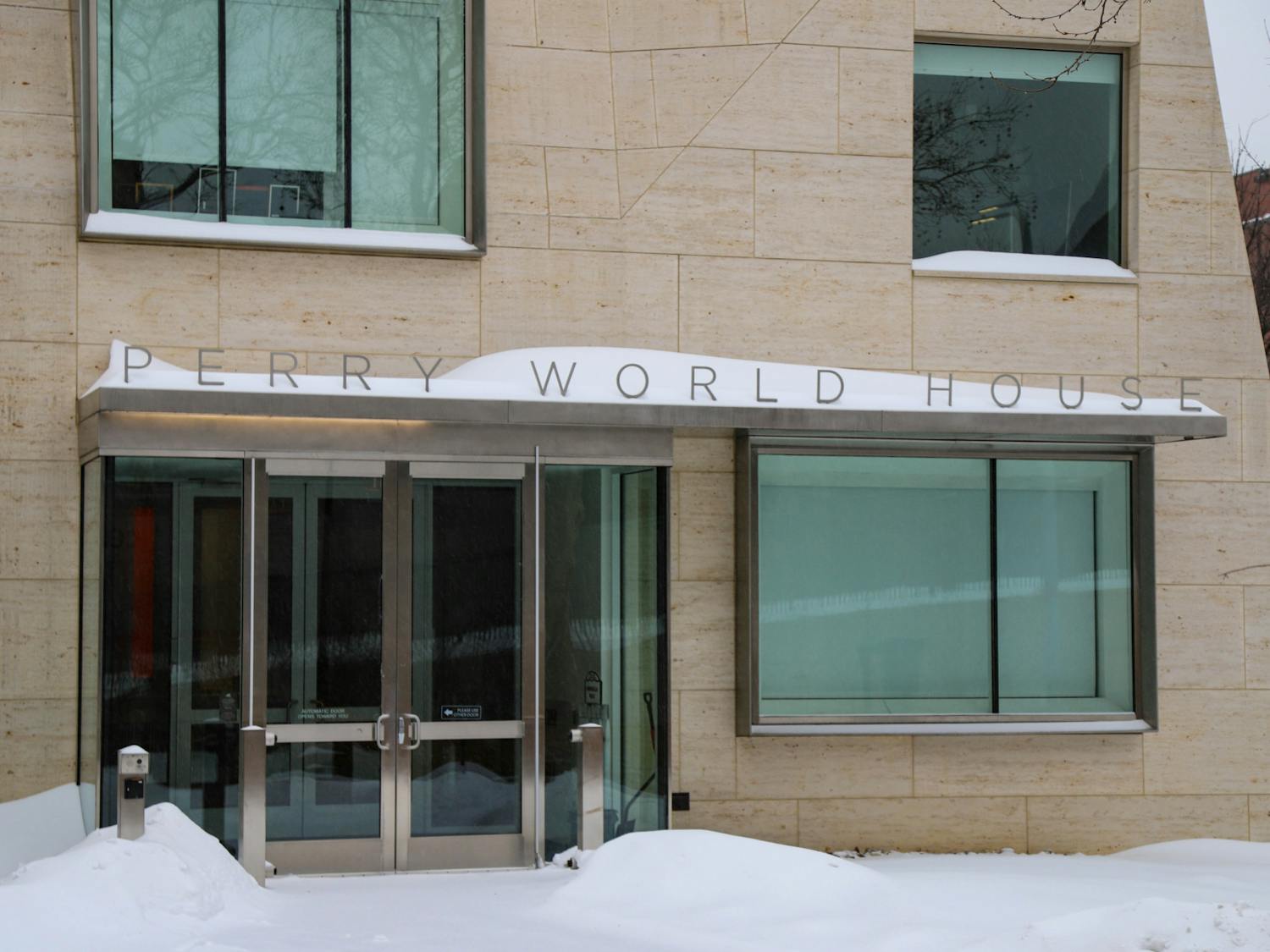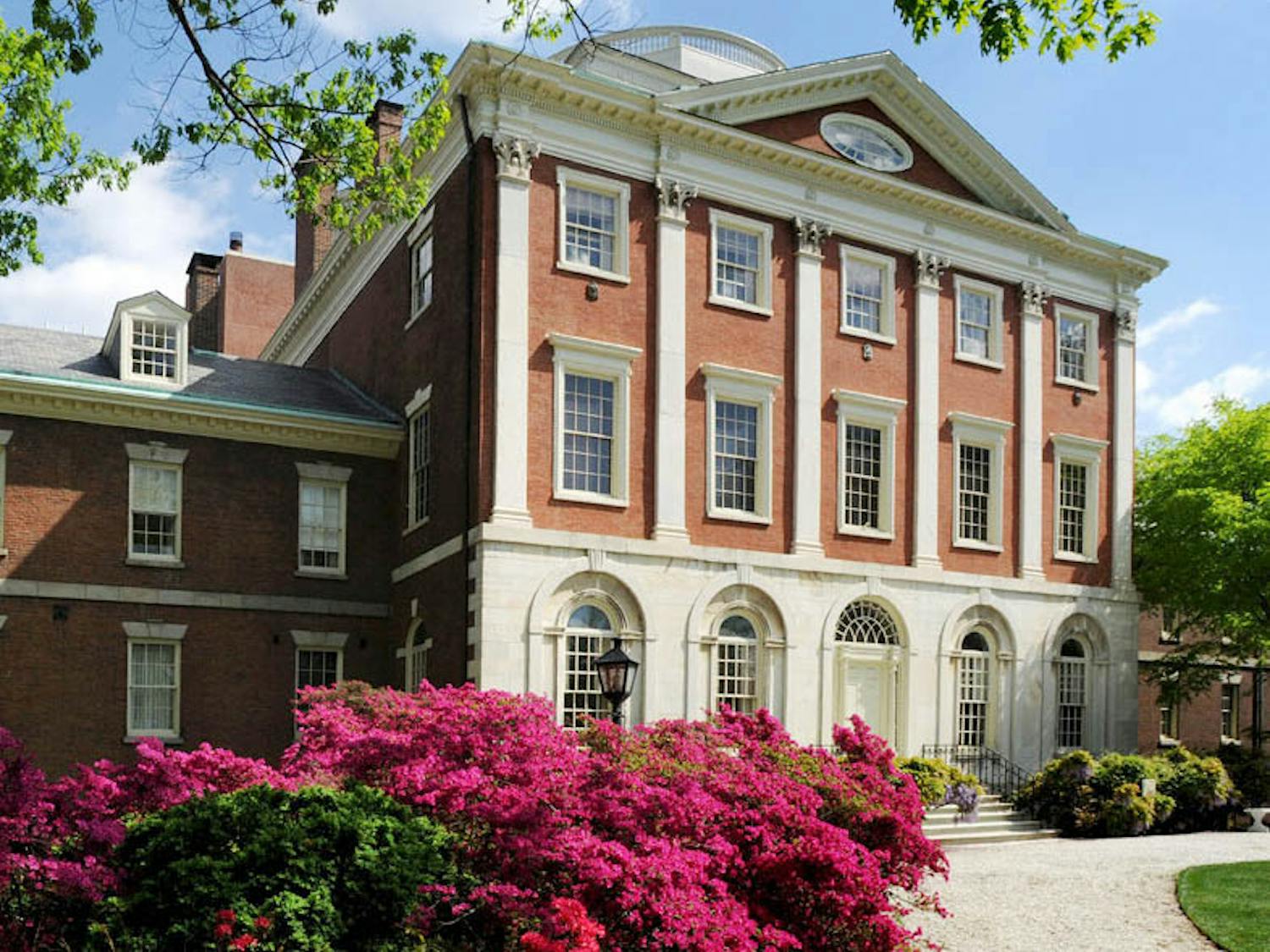The recent uproar at Wesleyan University is not the first time a top-tier school has been shaken by outcry over race and political correctness — the incident echoes a controversy that struck Penn 22 years ago.
Two weeks ago, a student op-ed published in The Wesleyan Argus received widespread condemnation in the Wesleyan community after criticizing the Black Lives Matter movement. A petition, which has at least 172 signatories, calls for withholding funding from the Argus until a number of conditions are met, including mandatory social justice training for staff reporters and page space reserved for “marginalized groups.” Some students have gone even further, calling for an outright boycott of the Argus.
The aftermath of the Wesleyan controversy has a lot in common with Penn’s 1993 “water buffalo” incident. The debacle began when Penn student Eden Jacobowitz shouted, “Shut up, you water buffalo,” to a largely black group of female students who noisily passed his room. Administrators brought disciplinary action against Jacobowitz on the grounds that he had violated Penn’s racial harassment policy.
The resulting public outcry questioned Penn’s commitment to freedom of expression, especially after Jewish cultural experts explained that Jacobowitz’s use of the term “water buffalo” was based on widely-used Hebrew slang, which describes a loud person and is not inherently racist.
“Even ‘Doonesbury’ and Rush Limbaugh came to a rare meeting of minds, agreeing that Penn’s handling of the incident warranted mockery,” wrote Greg Lukianoff, president of the Foundation for Individual Rights in Education, in his book “Unlearning Liberty: Campus Censorship and the End of American Debate”, which cites the water buffalo incident.
But a new level of outcry came when The Daily Pennsylvanian, in response to the incident, published a series of editorials by op-ed columnist Gregory Pavlik. Pavlik, one of the few conservative writers on the DP’s spring 1993 staff, criticized the civil rights movement’s effect on individual liberties. The DP, like the Argus, quickly came under fire for running the op-eds.
“If the DP prints it, then we must infer that they agree with [it] and condone it,” over 200 of Pavlik’s critics, including Penn students and faculty, wrote in a letter to the editor titled “African American Community Responds to Pavlik.”
Students disappointed in the Argus are now saying similar things at Wesleyan.
“That the Argus chose to give this man somewhere to share his disrespectful opinion and to then have the Argus and its staff members defend the publication, hiding behind the argument of ‘well, it’s not my opinion, but he’s allowed to have it’ is frankly a great disappointment,” Wesleyan student Michael Ortiz wrote in an editorial on Sept. 21.
The DP coverage of the water buffalo incident prompted a mass boycott of the DP, and many at Wesleyan are now calling for a boycott of the Argus as well. On the morning of April 15, 1993, just as Jacobowitz’s case was gaining national attention, a group of black students confiscated that day’s entire DP press run — all 14,000 copies. When DP staff tried to get the papers back, they were met with threats and racial epithets. While an appeal to administration and disciplinary authorities from the DP yielded no assistance, the media rallied behind the Penn newspaper.
“The national media [...] always notice the unpunished silencing of the press, and they asked the university if and when charges might be brought against the individuals responsible for suppressing the DP,” Penn History professor Alan Charles Kors wrote in his book “The Shadow University: The Betrayal Of Liberty On America’s Campuses,” which includes a chapter on the water buffalo incident.
Newspaper theft is legally considered a form of theft. In the same year as the water buffalo incident, two people at Penn State — who were caught stealing papers from newsstands — were charged with theft, receiving stolen property and conspiracy — all first-degree misdemeanors in the state of Pennsylvania.
Reactions to the boycott and mass theft of the DP put the Penn administration in the middle of a difficult conflict between two core Penn values: diversity and open expression. Then-Penn President Sheldon Hackney himself struggled to address the anger and resentment caused by the water buffalo incident without making a statement that could be interpreted as limiting free expression.
On this front, at least, Wesleyan President Michael Roth has made himself clear.
“Debates can raise intense emotions, but that doesn’t mean that we should demand ideological conformity because people are made uncomfortable,” Roth said in an online statement on Sept. 19. “Censorship diminishes true diversity of thinking; vigorous debate enlivens and instructs.”









